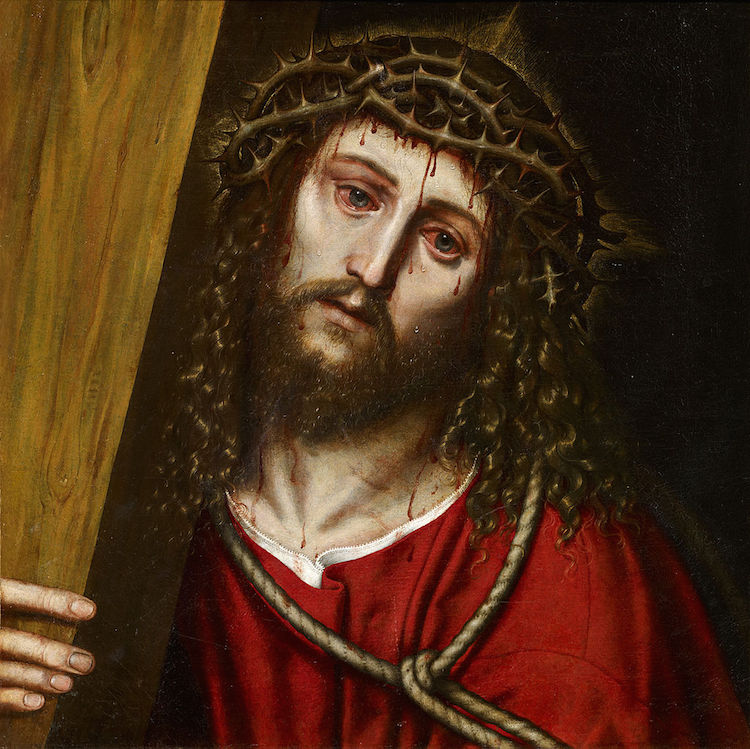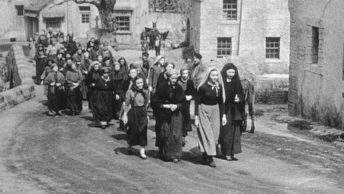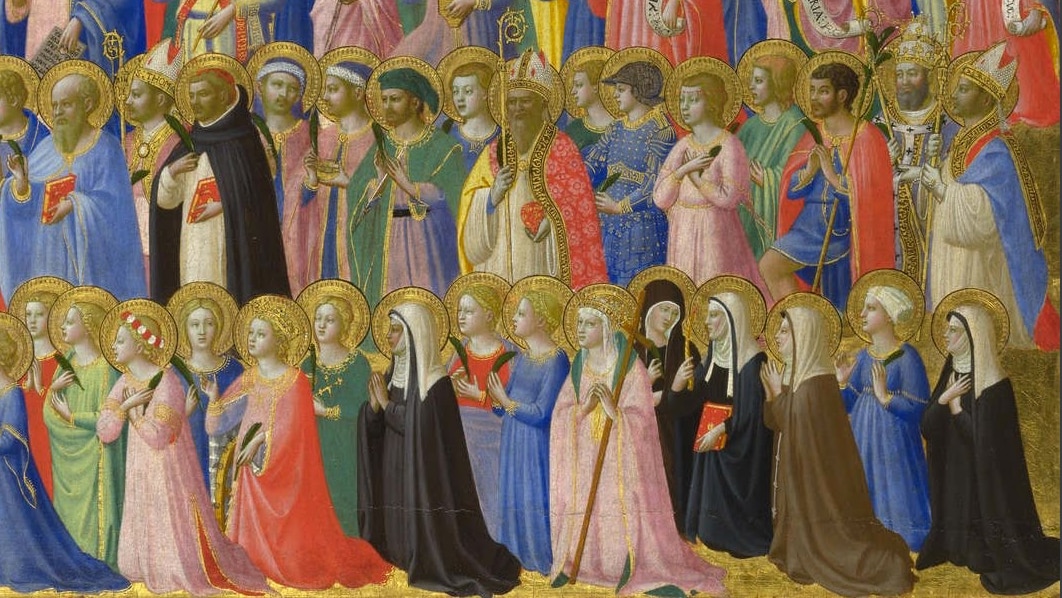The readings for the Thirteenth Sunday in Ordinary Time deal with topics we Americans, and perhaps people everywhere, would rather avoid. The readings deal with sickness and death. We do our best to avoid sickness and death. That’s reasonable. But there is much in us that is afraid of sickness and death. We do our best to avoid talking about them. That is not reasonable. That’s a denial of reality. We have such a hard time with these topics that we have created stories tone down the reality. So, when a baby dies or a child, like the child we call Talitha in the Gospel (Mark 5:21-43) dies, we say, “God must have wanted another angel with Him in heaven.” This is not true. God doesn’t go around killing babies and little children because his angel inventory is low. And besides, the whole concept of people becoming angels after they die is a complete fabrication. Angels are different beings than human beings, including dead human beings. Human beings do not become angels and angels do not become human beings. Parents also make a huge mistake when they tell their little children that Grandpa died because God wanted him to be in heaven with him. Often they have to deal with a child who has become angry with God for killing Grandpa.
Our fictions about death even extends to our pets who some say go to Doggy Heaven, Cat Heaven or what have you. A mother brought her nine year old little boy to me one day and had him ask a question that was bothering him since his pet rabbit died. He asked, “If my rabbit went to bunny heaven, can a dog in doggy heaven jump the fence and start chasing him?” I told him that dogs didn’t chase bunnies in heaven. What I should have added is that creatures who do not have immortal souls do not have a special life after death, but a nine year old cannot understand that sort of reasoning. And many adults don’t want to deal with it.
Let’s face it, most of us cannot understand the very fact of death, so we put it all on God’s shoulders. “It’s God’s will,” we say when a person dies. No it isn’t. To say that it is God’s will is to say that God does evil things. If God is All Good, and He is, how can He do evil things? Did God have an off day? Aside from when he created some of our voices, God does not have off days. So how can we arrive at some understanding of the existence of sickness and death? How can we understand why that poor lady in the Gospel was suffering for years from hemorrhages, or why Jairus’ daughter should die? How can we understand why good people that you know and that I know have become terribly sick or have died? Perhaps we can’t answer these questions, but we certainly are wrong when we pass the blame off to God.
The author of the first reading, from the Book of Wisdom (1:13-15; 2:23-24), a book found in Catholic Bibles, does not make this mistake. Not is he afraid to tell it like it is, to tell the truth. Our readings begin with his telling us, “God did not make death. Nor does He rejoice in the destruction of the living.” He made everything wholesome and good. He formed man to be imperishable, made in the image of His own nature. But through the envy of the devil, death entered into the world.
This is something else we don’t want to hear. Sickness and death are the result of sin. Most often this is not the result of the sins of the person who gets sick or dies, but it is due to the consequences of sin in the world. Now, it is tempting to just blame Adam and Eve, but that takes us out of the picture. We are not all that innocent. Look, would there be wars if pride and avarice and other sins did not exist? No, there would be no reason for war. But these sins do exist and good people like Edith Stein and Ann Frank and the millions of innocent people who died during the conflicts of the last century all suffered the results of these sins. Ask yourself, “Would women be enslaved in the sex industry if lust and avarice did not exist? Would there be AIDS, and sicknesses of the personal nature if people never sinned with their bodies?” No, but these sins do exist, and those held captive by the sex industry or tricked into joining it for the love of money, or forced into it to support a drug habit, all suffer the results of these sins. There is no such thing as a victimless crime. Every click on a porn site enriches pimps somewhere and continues to enslave mostly young women. This is the real war on women. But, we don’t want to hear that our own participation in sin results in others suffering sickness and death. So we blame Adam and Eve. Or worse, we blame God. God did not create evil. 1 John 1 says, “God is light, in Him there is no darkness at all.”
So, is there hope for this world? Yes, there is hope. There is hope because Christ is in this world. We learned how He healed that lady and how He raised up that child. We know that He alone has power over sickness and death. We are convinced that there are many who have returned to health due to the direct intervention of the Lord of Life. And we also know, that those who believe in Him with their lives but who do not return to health, those who do die, in fact remain alive with Him. We believe in the gift of Christ’s resurrection. He gave His Life to those who accept Him, not just with words but with their lives. We believe in Baptism, for at Baptism we received the spiritual life of the Trinity.
We hold on to Jesus Christ with all our might, because He alone makes sense of the confused reality of life. We entrust our dead to the Lord seeking His mercy and compassion, asking Him to reward them for the goodness of their lives and forgive them for their participation in sin. And we ask the Lord to help us transform the world from its slavery to sin by giving us the courage to fight sin in our own lives.
“God did not make death,” the reading proclaims. He made life, eternal life. And we, the baptized, have been given the gift of this life.








